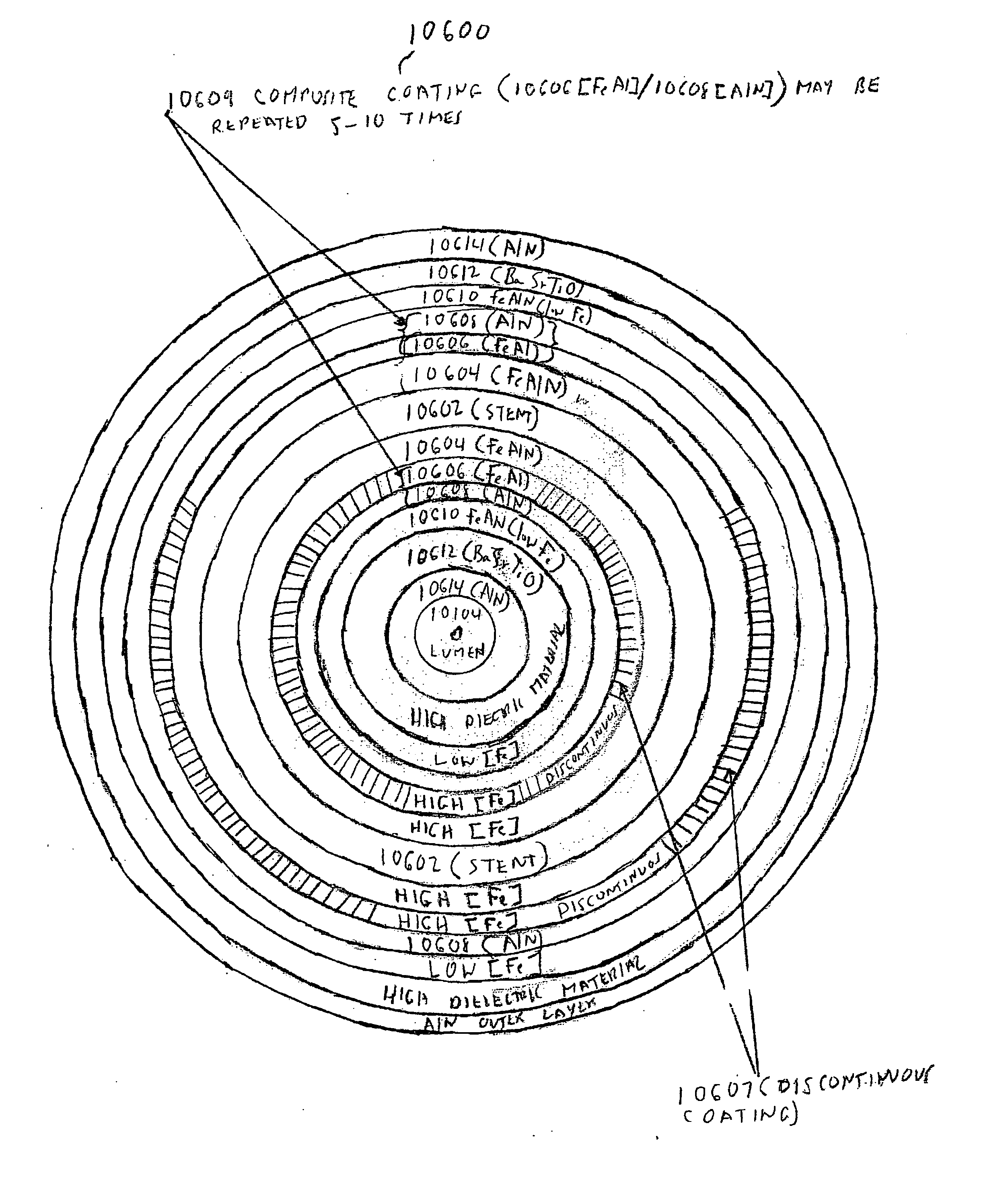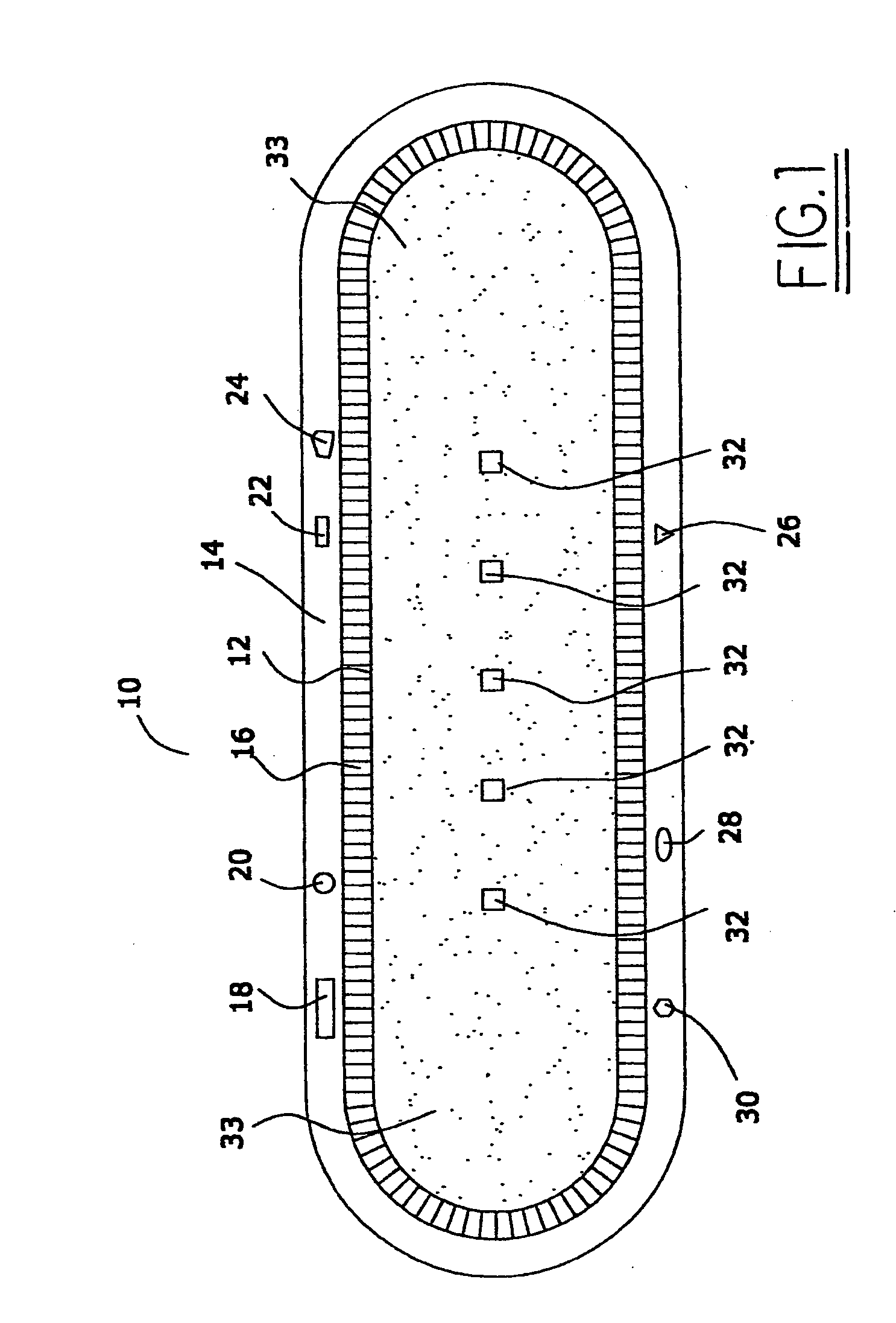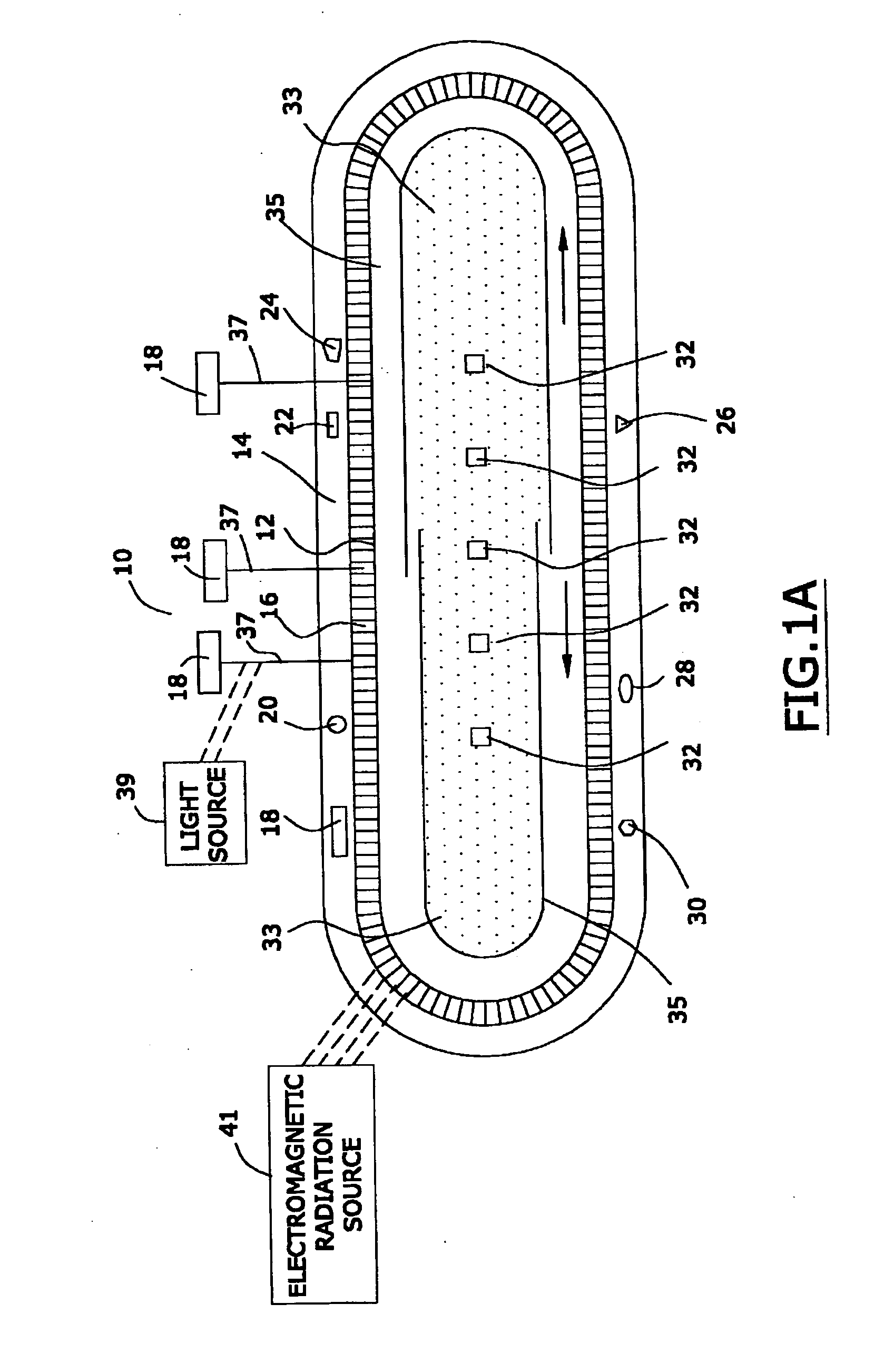MRI imageable medical device
a medical device and image technology, applied in the field of medical devices with imageable capabilities, can solve the problems of affecting the image affecting the treatment effect, and affecting the quality of the patient, so as to inhibit the distortion of the image of the medical resonance image taken
- Summary
- Abstract
- Description
- Claims
- Application Information
AI Technical Summary
Benefits of technology
Problems solved by technology
Method used
Image
Examples
Embodiment Construction
[0085] In the first part of this specification, certain assemblies that contain nanomagnetic material, and / or certain processes for making nanomagnetic material, will be briefly described. Thereafter, in the second part of this specification, an improved stent assembly whose lumen is readily imageable under magnetic resonance imaging conditions will be described.
[0086]FIG. 1 is a schematic diagram of a preferred seed assembly 10 of this invention that may, in one preferred embodiment, contain nanomagnetic material. The FIGS. 1 and 1A of this specification are substantially identical to the FIGS. 1 and 1A of published United States patent application US 2005 / 0025797, published on Feb. 5, 2005, the entire disclosure of which is hereby incorporated by reference into this specification; in particular, and without limitation, the disclosure of pages 2 through 40 of such published patent application, are hereby incorporated by reference into this specification.
[0087] Referring again to ...
PUM
| Property | Measurement | Unit |
|---|---|---|
| frequency | aaaaa | aaaaa |
| size | aaaaa | aaaaa |
| size | aaaaa | aaaaa |
Abstract
Description
Claims
Application Information
 Login to View More
Login to View More - R&D
- Intellectual Property
- Life Sciences
- Materials
- Tech Scout
- Unparalleled Data Quality
- Higher Quality Content
- 60% Fewer Hallucinations
Browse by: Latest US Patents, China's latest patents, Technical Efficacy Thesaurus, Application Domain, Technology Topic, Popular Technical Reports.
© 2025 PatSnap. All rights reserved.Legal|Privacy policy|Modern Slavery Act Transparency Statement|Sitemap|About US| Contact US: help@patsnap.com



